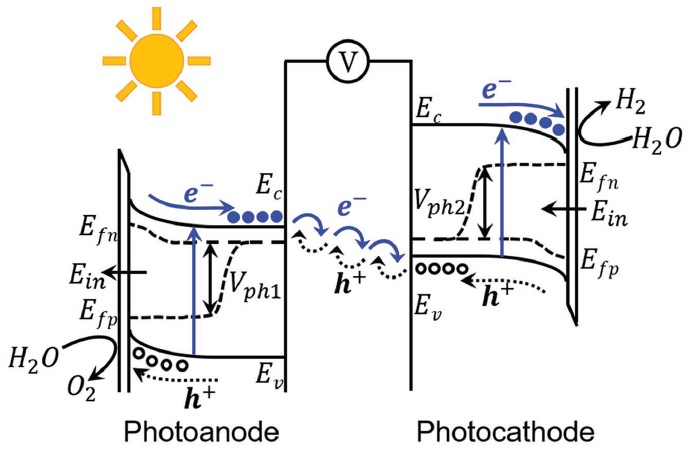Sunlight is the ultimate renewable energy resource. Already a variety of solar-powered energy-harvesting systems exist to exploit it, but one of the most popular recent topics and the focus of an invited review for the Excellence in Energy series in Advanced Energy Materials is photoelectrochemical (PEC) water splitting.
PEC water splitting is effectively an artificial version of the photosynthesis scheme found in plants. In the lab, photoelectrodes are used to generate a potential which drives catalytic reactions, namely, the evolution of hydrogen (at the photocathode) and oxygen (at the photoanode). Because these reactions occur at different electrodes, there is no need for post-production gas separation processes, therefore saving time and money. Most critically, this keeps the cost per kilogram of produced hydrogen low.
As well as being an ingredient in the manufacture of many chemicals and a useful participant in certain refining processes, hydrogen is predicted to be an important fuel in the future, making the capital cost one of the key factors in the development of a commercially viable PEC system.
The review from Can Li’s group in Dalian, China, and his collaborators working in China and the USA, describes the state of the art in the design of water-splitting systems, with a focus on the materials being applied to improve the photon conversion, charge separation, reaction efficiency, and the long-term stability of the system components under realistic operating conditions. They outline the requirements of an efficient PEC device and discuss reaction kinetics, stability and degradation, and the advantages and disadvantages of various Earth-abundant materials.
Their proposed strategies for the screening of materials and for materials optimization toward commercially viable PEC systems are freely available to all readers for a limited time.
Have you already discovered the Excellence in Energy series? Check out this virtual issue of invited-only reviews from top energy researchers. Everything is free to read for a limited time!
Interested in PEC systems? Here are some more articles on the subject:


















